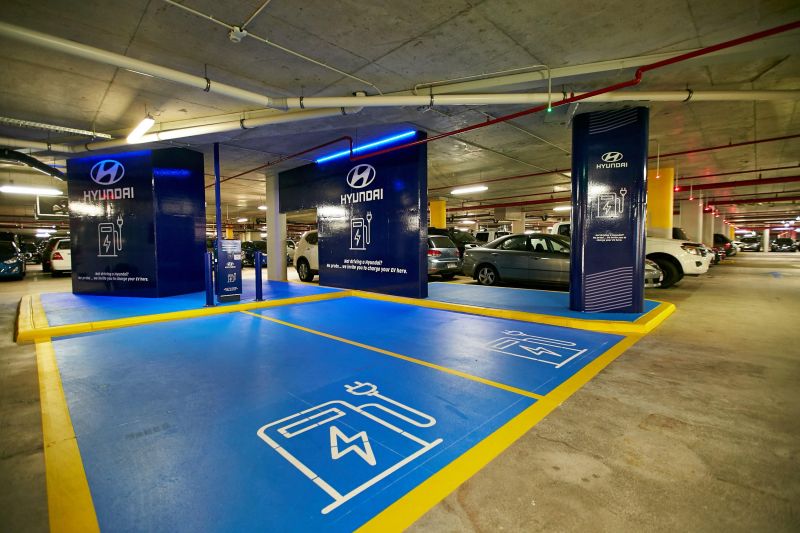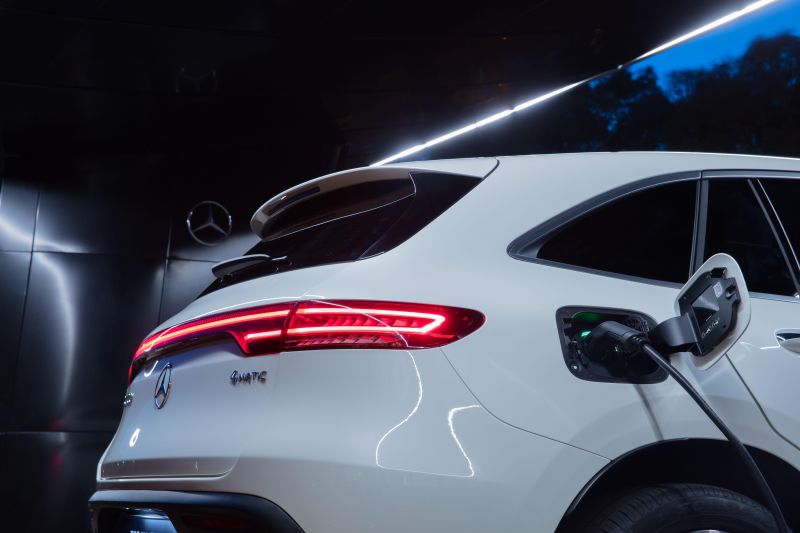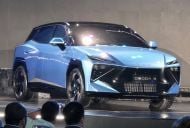Drivers who block electric vehicle chargers in Victoria will be fined under new road rules.
Non-electric vehicles, or electric cars that aren’t plugged in to the charger, face fines of $330.44 for “stopping in a parking area for electric-powered vehicles”.
The rules are designed to stop electric vehicle chargers, which are sparse in some parts of Australia, from being blocked by drivers looking for a convenient spot to park their internal-combustion vehicle.
Similar rules have been implemented in American states such as Colorado to prevent what’s known as ICEing.
Although it has brought in new rules to protect electric vehicle drivers, Victoria has also made news for trying to tax them.
The state has followed South Australia in committing to a road tax for electric vehicle and plug-in hybrid vehicle owners.
The tax of 2.5 cents per kilometre for pure electric vehicles and 2.0 cents per kilometre for plug-in hybrid vehicles was announced by the Victorian Treasurer ahead of this week’s state budget, and will come into force in July 2021.
An electric vehicle owner who travels 15,000km per year will be charged $375 on top of their annual registration fee, while plug-in hybrid owners will pay an extra $300 per year.
Although the estimated $30 million the tax will raise annually won’t be funnelled directly into electric vehicle infrastructure, the Treasurer said $45 million will be set aside in the budget to boost take-up of hybrid, plug-in hybrid, and electric vehicles.
Chairman of the Electric Vehicle Council of Australia, Behyad Jafari, described Victoria’s tax as a “shameful abdication of Victoria’s intention to reduce emissions”.
South Australia’s proposed charge will include a fixed component, similar to current registration charging, and a variable charge based on distance travelled.
The proposal has been widely criticised, with chief executive of the peak body for carmakers in Australia, Tony Weber, describing it as “beyond belief”.
“We believe this charge will make South Australia the only jurisdiction in the world that actually opposes the uptake of low and zero emission vehicles,” Mr Weber added.
As state governments in Victoria, South Australia, and New South Wales have moved to tax electric vehicle owners, the Australian Capital Territory (ACT) has positioned itself as the friendliest jurisdiction in the nation for EV buyers.
It recently announced an ambitious target to sell only zero-emissions new vehicles by 2030.
Read up on the top 10 best selling cars in Australia in 2021:









